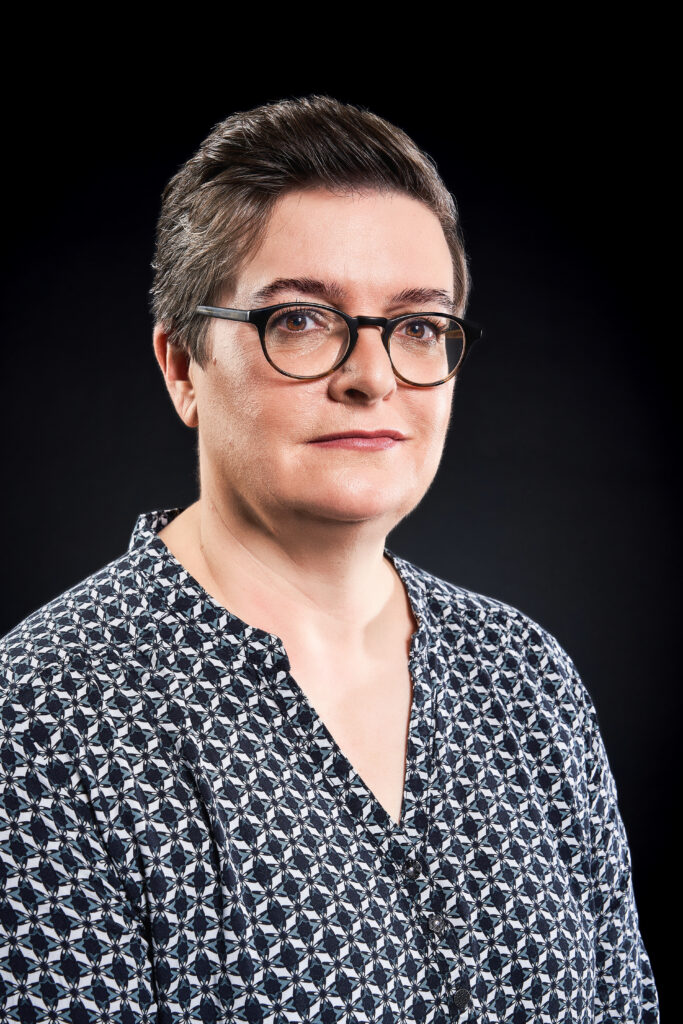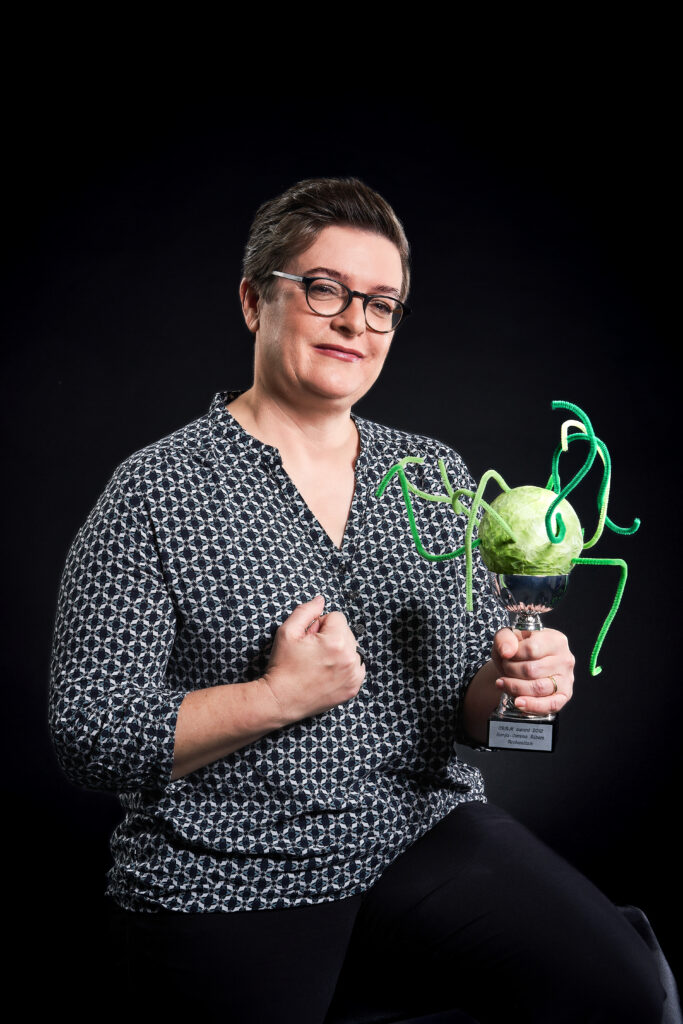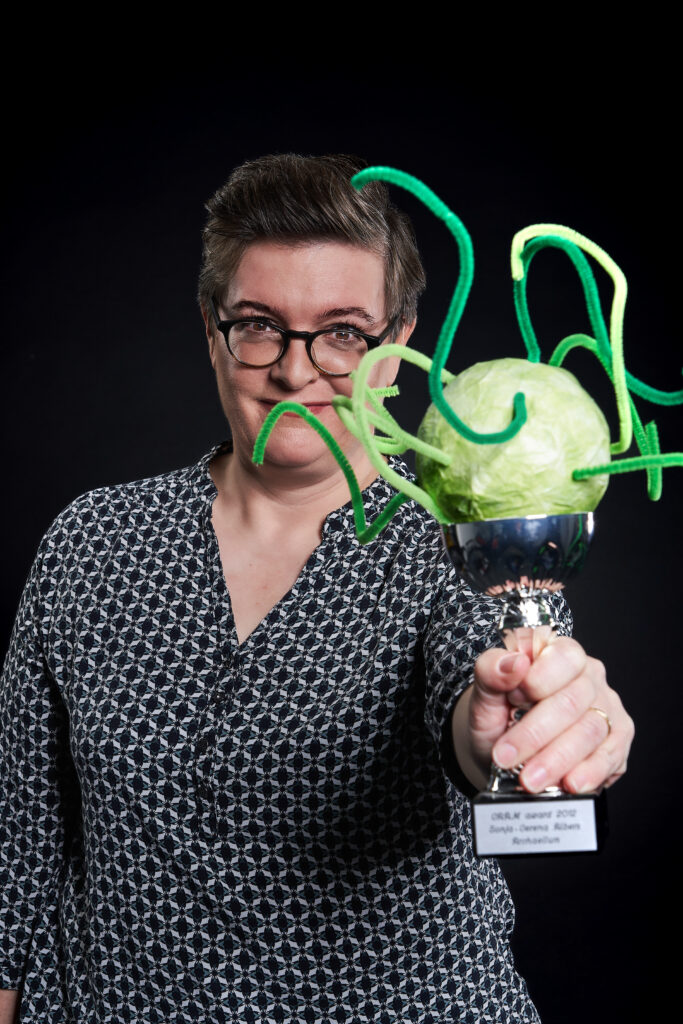The call of the archaea – a portrait of Sonja-Verena Albers

„I’m a nerd, I’ve always loved learning and acquiring new things,“ says researcher Prof. Dr. Sonja-Verena Albers, who was elected to the American Society for Microbiology this year, about herself. Her passion is the archaea, probably the least known life forms on this planet despite their extreme and fascinating lifestyles. Some of these microorganisms grow at almost 100°C, others live in highly concentrated sulphuric acid and still others thrive in the oxygen-poor depths of the ocean. At first glance they resemble bacteria, but upon closer inspection they are much more similar to our cells. Research now shows that eukaryotic life – i.e. plants, animals and humans – probably originated from archaea. Sonja-Verena Albers devotes her research entirely to these creatures.
Her passion for biology was awakened at school. Her mother tried to persuade her to do a banking apprenticeship. But Sonja Albers always knew that she would study biology and then go into research. She wrote her (Diplom) thesis at the Max-Planck-Institute of Biochemistry in Munich under Wolfram Zillig, one of the best-known archaea researchers. Ever since, she has been passionate about these life forms: „I want to find out everything there is to know about these creatures.“ Following the call of the archaea, Albers’s next step was to go to the Netherlands. There she was able to continue working on the archaeon „Sulfolobus solfataricus“ for her doctoral thesis, which she is still researching today. Archaea research is first and foremost basic research, as the field is comparatively young and the cultivation of archaea in the laboratory can be difficult at times. The biologist describes the motivation and relevance of her research quite simply: “When someone asks me why my research is important, or who is interested in it, I say, it is important to me […] if my research were to make a contribution to society, that would be nice, but that is not the driving force behind it. I do this research because it interests me.”
In archaea research, the scientist is particularly well known for the „archaellum“. Some archaea have a structure on their cells that is used for locomotion. As this structure resembles the so-called flagellum of bacteria, researchers have always referred to it as the archaeal flagellum. However, there are clear structural differences between the two, so Sonja Albers, together with Ken Jarrell, decided to change the name to „archaellum“. Admittedly, she had not anticipated the strong reactions of many scientists to this simple name change. Established researchers in particular voiced clear criticism of this plan and an academic debate ensued that continues to this day.
When asked whether she had any doubts due to the criticism, she pulls out a quote from Max Planck that hangs in her office: „A new scientific truth does not tend to assert itself in such a way that its opponents are convinced and declare themselves taught better, but rather (…) that the rising generation is familiarized with the truth from the outset“. Many textbooks now also mention the archaellum as well. Her research group presented her with a trophy, including a hand-crafted archaellum, which also reminds her of her importance as a role model for the next generation. The debate did not harm her career, as Sonja Albers was appointed Professor of Microbiology at the University of Freiburg in 2014. In addition to her research activities and teaching, the researcher is a member of the German National Academy of Sciences Leopoldina, the Senate of the University of Freiburg and now also Dean of the Faculty of Biology – she enjoys doing a lot for the sciences as well as for the people who work in these fields. „I don’t know how I manage to do all of this, but I think I’ve learned to prioritize. The most important thing to me is my research group, the people I work with here.“ To be able to switch off after all this work, Albers likes to go running and cycling in the countryside or indulges in North German crime novels.
On the subject of discrimination against women in science, she says: „I have never consciously felt disadvantaged because of my gender.“ She has always achieved the goals she had set for herself in her career so far. In the course of her many years in science, however, she has also observed that awareness of gender issues has increased. It is now more normal for women to be appointed as professors and for specific attention to be paid to increasing the proportion of women in science. An important issue for her personally is the compatibility of career and family. While working on her doctorate in the Netherlands, Sonja Albers met her husband, who is also a biologist. The couple now have two sons and watching them grow up fills her with pride. Mainly thanks to a strong network and the support of her husband, the scientist has been able to successfully combine her career with motherhood.
It is important to her to pass this experience on to her students and doctoral candidates: „I want to show them that they don’t have to give up their studies and their career, but that it can be done.“ In this respect, Albers believes that university research in particular is actually more practical than a job in the industry, as it offers more flexibility. She advises young women who are interested in a career in science to build up a supportive women’s network early on. Communication and support in a women’s group is often more helpful, especially when it comes to women-specific issues. It is a great motivation for Professor Albers to share her knowledge of archaea, created with passion and great joy by her and her team, with other female scientists.


Portrait by Carla Mallmann
Carla Mallmann is currently getting her Bachelor’s degree in Life Sciences at the University of Freiburg. She is particularly passionate about brain research and genetics. In addition to the human brain, she is also interested in psychology, history and politics. In her free time, she likes to read or go hiking or swimming in the countryside.